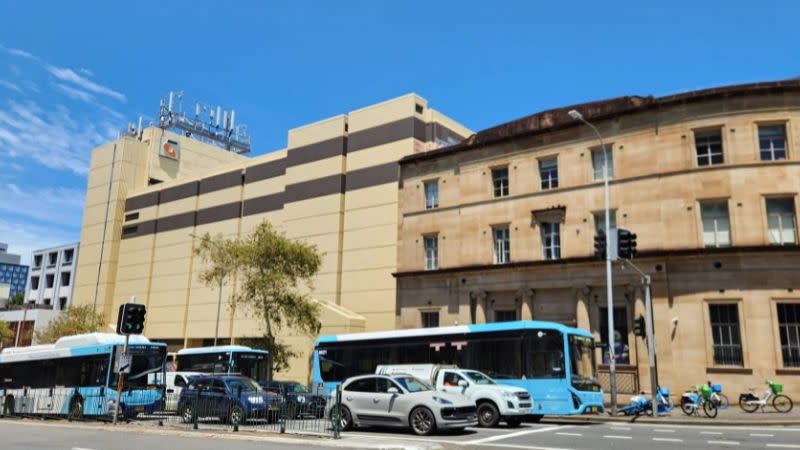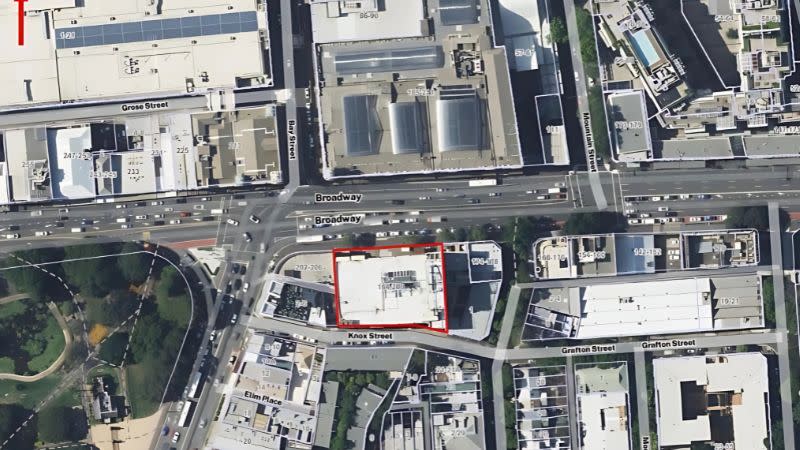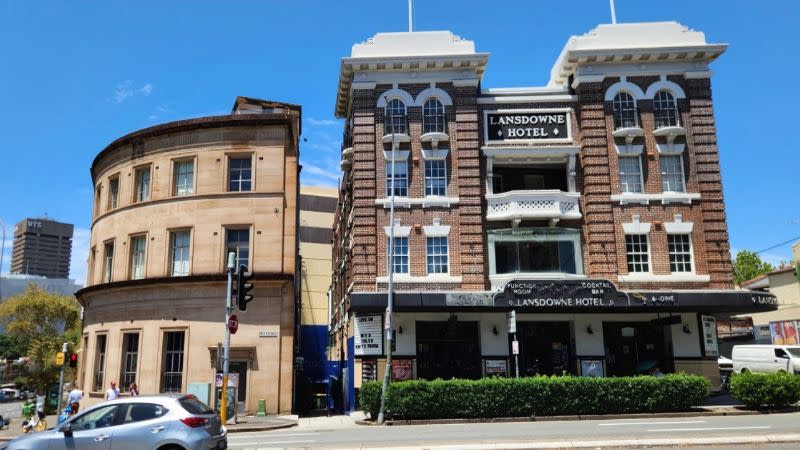Backpacker Giant to Rise in Sydney’s Inner-City

A giant backpacker hostel will rise from the bones of a former Telstra exchange in inner-city Sydney despite a flood of local backlash.
Approved by the City of Sydney, the five-storey, 1058-bed development at 184-200 Broadway, Chippendale will be among the largest backpacker projects currently planned in the state.
The $13.1-million overhaul will transform the existing brick block into a 164-room hostel with a rooftop pool, bar and a pedestrian link connecting City Road and the Lansdowne Hotel.
AVM Project Management lodged the application for the site Tricon Management Group acquired from Telstra for $67.6 million in 2023.
Company records identify Sydney-based investor Rino Criola as being linked to both entities.
He also heads The Lansdowne Sydney Pty Ltd, which owns the neighbouring Lansdowne Hotel at 2-6 City Road.
A rooftop venue has already been approved at the pub. A separate application seeks extended trading hours for that space.

The hostel and Lansdowne pub sites are side-by-side and form part of a broader $90-million Chippendale play.
It was previously reported that the venture was led by Criola, with backing from Ben Ingham—of Ingham’s poultry fortune—and Campbell Duncan, principal of Duncan Investments (Australia) Pty Ltd.
Designed by Durbach Block Jaggers, the new hostel will include shared rooms, communal areas, a co-working space and rooftop views over Victoria Park and the CBD.
The project exceeds planning limits for height and floor space but council officers supported the proposal based on its “architectural merit, street activation and location”.

During public exhibition, the proposal drew 366 submissions—314 objecting and 52 in support.
Local opposition was led by the Friends of Chippendale group, which argued the project would damage neighbourhood character and do little to address the city’s housing shortage.
“This DA does not contribute to a real housing solution,” its submission said.
“It packs 1058 beds into overcrowded, substandard conditions, creating an urban slum.”
Pro-housing group YIMBY Sydney backed the proposal, calling it a step toward broader housing affordability and diversity across the city.
Planning documents confirm conditions have been imposed to manage amenity concerns, including noise mitigation, waste control and operating hour limits for communal spaces.

The Broadway site has been shaped by 180 years of diverse uses, first as a distillery in the 1840s, then a sugar refinery, followed by a motor funeral service and car dealership.
In 1970, the Overseas Telecommunications Commission acquired the site to create a major communications hub, and the Broadway International Terminal was officially opened in 1974 by the-then Prime Minister Gough Whitlam.
Tricon was contacted for comment but did not respond before deadline.















